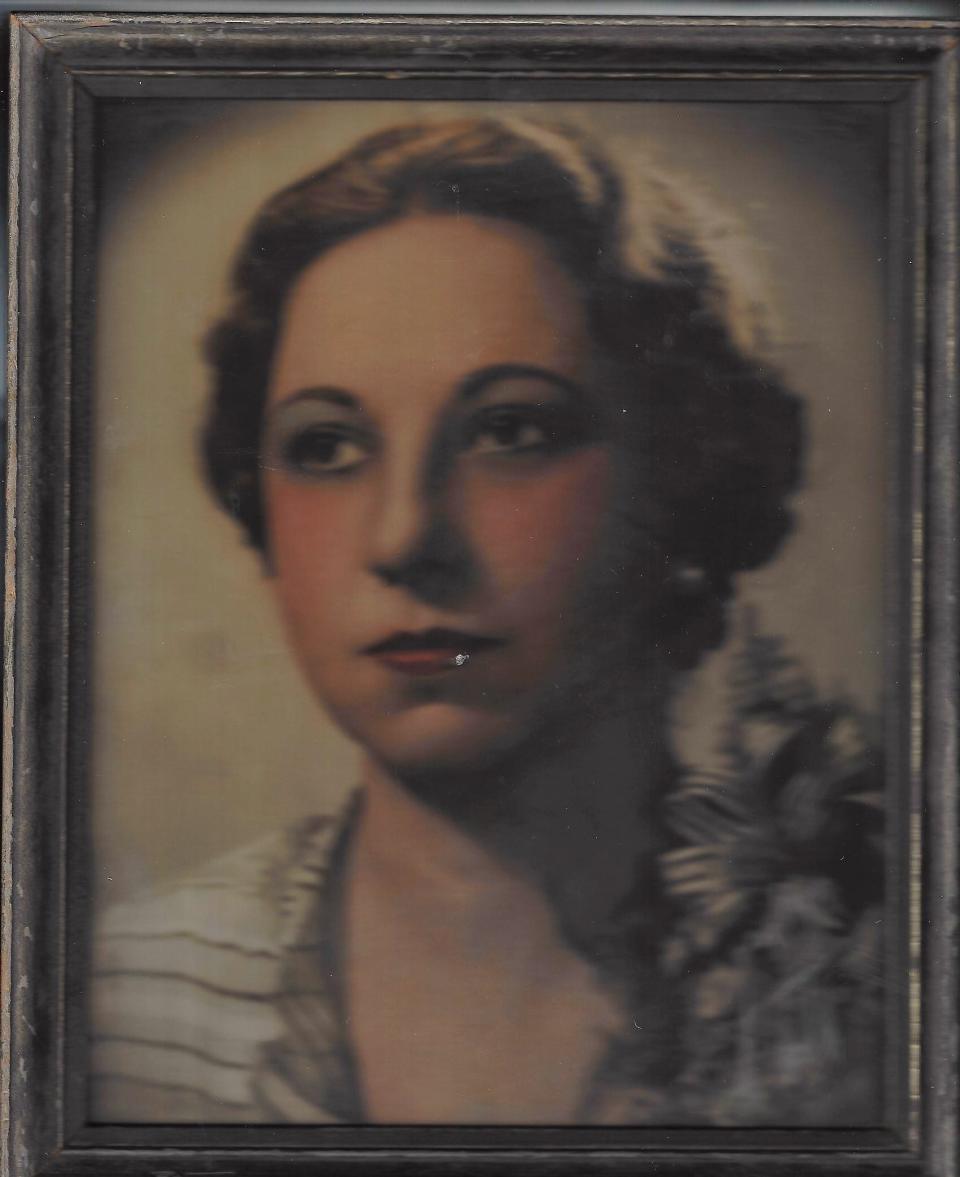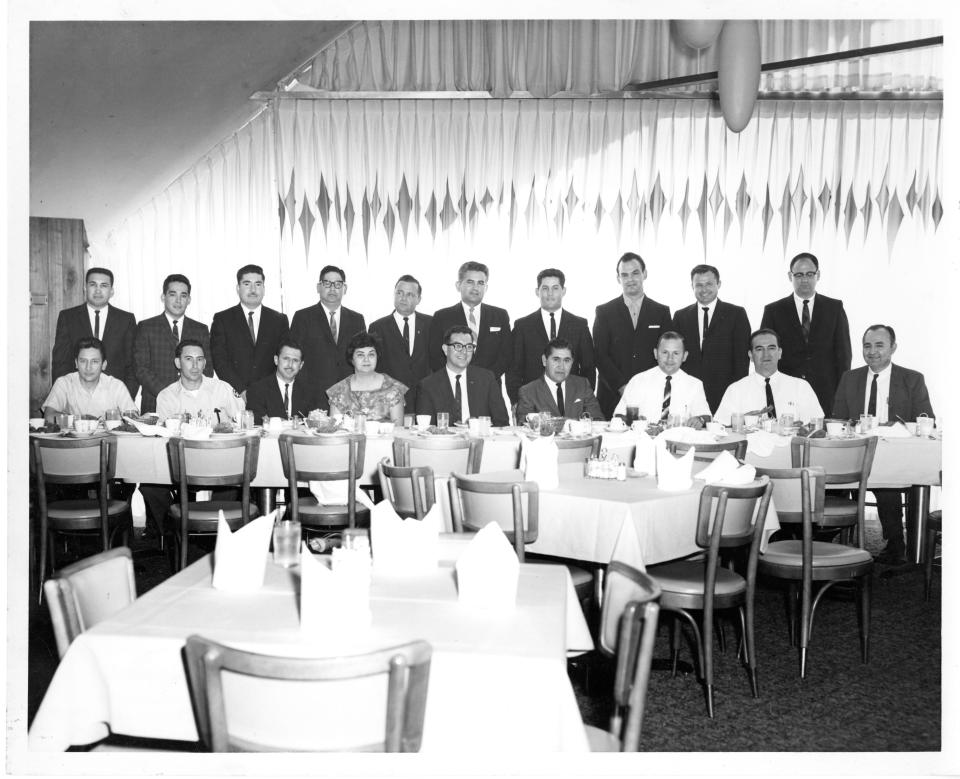South Texas activist pushed LULAC on equal rights for women in 1930s
In the series "Remembering South Texas activists," the Caller-Times will highlight South Texas Hispanics who have broken glass ceilings in history and whose contributions to civil rights and activism are still seen today.
A Mexican American woman rose to a high-ranking elected seat in an organization that pushed for the empowerment of all Latinos. But she found that even she was not safe from discrimination against women within that group.
Alice Dickerson Montemayor was elected second national vice president general of the League of United Latin American Citizens in 1938. She put words to paper in the March 1938 issue of LULAC NEWS to tell members that women should have the same opportunity as men to participate in the organization.
There were two reasons Montemayor wrote the article: One was that, two years earlier, an El Paso Ladies LULAC chapter disbanded after male LULAC officers repeatedly ignored the chapter’s correspondence seeking advice. Another inspiration was a high official who said members of the organization hated working under a woman.
Montemayor's editorial firmly opposed the idea of male superiority and the exclusion of women.
“I do not know who are the ones, who hate to be under a woman," her featured editorial, headlined "Son Muy Hombres?", stated. "My honest opinion of those who think in that line is that they are cowardly and unfair, ignorant and narrow minded.”

She wrote that both the U.S. and LULAC constitutions acknowledge equal rights and representation for women, and “if a woman is qualified to fill a general office and some of our membership draw the line on her just because of her sex, then they are not true Lulackers.”
The editorial was not a one-off for the prolific Montemayor. She wrote more articles for the newsletter than any other woman in the history of the organization. Through these essays she often challenged the patriarchal and machismo ideology prevalent during her time in the organization and encouraged the participation of women and Mexican American youth.
She was the first woman in LULAC to hold an elected national position not specifically designated for a woman, and while in this position, she promoted the establishment of more ladies’ councils, according to the Texas State Historical Association. As a Mexican American woman, she faced two times the discrimination of her male counterparts — and was seen as radical and improper for her outspoken nature.
First woman elected to a national LULAC post
Born on Aug. 6, 1902, to John Dickerson and Manuela Barrera in Laredo, Texas, she was of both Irish and Hispanic heritage. She planned to study law after graduating from high school but stayed in Laredo to care for her mother after the death of her father, instead attending Laredo Business College. She married in 1927 to Francisco Montemayor and had two sons.
Founded in 1929, LULAC was essentially a male club or fraternity with the idea that politics was for men only, said Cynthia Orozco, professor emeritus at Eastern New Mexico and writer of Montemayor’s biography.
In 1933 Ladies LULAC was founded, allowing Latin American women to unify on the same basis as men. These councils often worked separately from the men’s, focusing on advocacy for children, the poor, women and other areas.
Montemayor joined the Ladies of LULAC 15 as a charter member and became the chapter's secretary in 1936. She was elected as second national vice president general of the whole organization from 1937 to 1940, according to the Texas State Historical Association. She also held the position of associate editor of the LULAC News, the official newsletter of the organization, during this time.
Advocating for youth, women
Although LULAC was one of the first national organizations to place emphasis on the role of women, according to the LULAC website, Montemayor saw more potential in the organization than what it was harnessing at the time.

Along with a woman from the San Antonio Ladies LULAC council, Montemayor helped organize and write the first charter for a Junior LULAC in Laredo, seeking younger people to join the organization. She served as the group’s president general from 1939 to 1940.
“They took the resolution to the national meetings and argued for it and said … 'If we are going to think about the future of LULAC and want to make our community better, we have to start with our youth'” said Jonathan Cortez, Jonathan Cortez, a postdoctoral fellow in borderlands history at the University of Texas at Austin.
In her editorial “We Need More Ladies Councils,” from the July 1937 issue of the LULAC News, Montemayor pointed out the inactive men’s councils and the necessity of more ladies’ councils.
“Now that our brothers have given the women a chance to show them what we can do, let all the Ladies Councils that are active now try and revive the Dormant Ladies Councils… so that we may prove to our brothers that we can accomplish more than they can,” she wrote.
Criticism from her community and LULAC alike
As with most activists of their time, Montemayor faced backlash from women and men who felt she was “stepping out of line,” according to Orozco.
A family member has his own perspective.
“In our communities there was a kind of desire and expectation that the men were going to be leaders,” her son, Aurelio Montemayor, told the Caller-Times. “My mother was trying to offset something that’s considered a deep cultural kind of traditional fabric. … I think a lot of people in LULAC thought she was attacking something cultural, something that shouldn’t be attacked.”
Around the 1940s Montemayor was no longer a part of LULAC, with her name missing from the following editions of LULAC News.
Yet Montemayor's impact is measurable, Cortez said. At the height of her stint in LULAC, the lady councils start to increase, as well as the participation of youth.
Feminist councils formed in the 1960s and ’70s, and the organization began to finally have mixed councils instead of separate men and women.
Related news
More: South Texas attorney Gustavo Garcia helped secure civil rights for Latinos
More: Exhibit honoring Mexican American heroes in danger of being lost; here's how to help
This article originally appeared on Corpus Christi Caller Times: Alice Montemayor raised awareness of equal participation in LULAC

